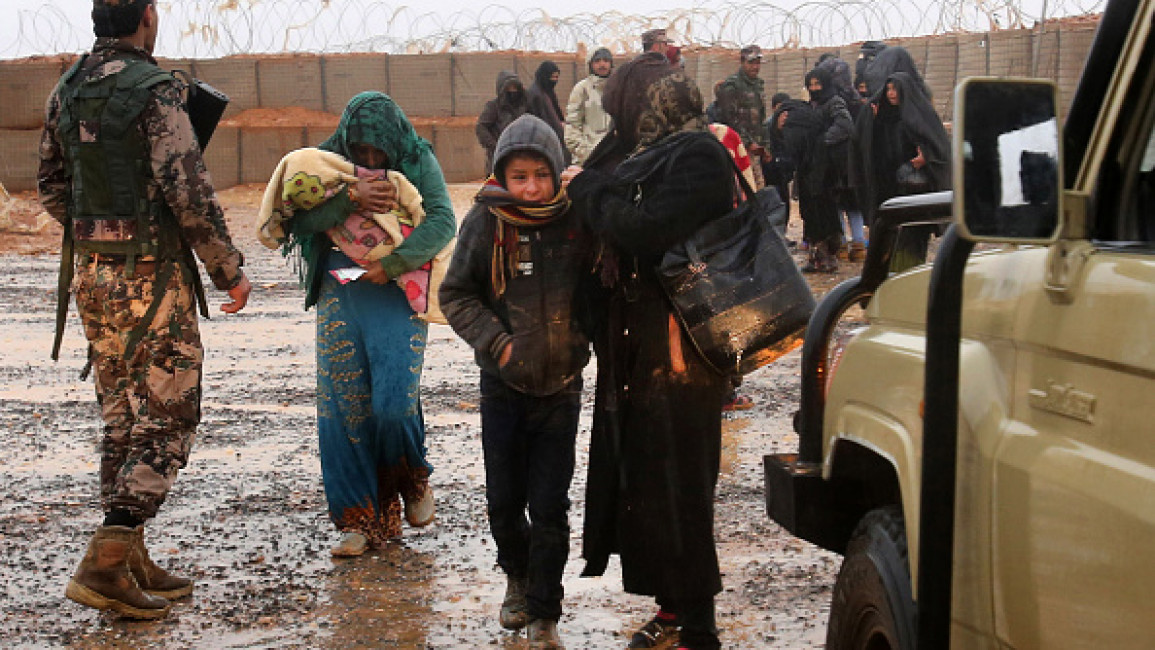Aid organisation 'breaks siege' on Syria al-Rukban IDP camp
The Syrian Emergency Task Force (SETF) announced on Tuesday that it had delivered its first aid shipment to the al-Rukban IDP camp, breaking an eight-year-long siege imposed on the camp by the Syrian regime and Russia.
Al-Rukban is a camp of about 10,000 internally displaced people (IDPs) located on the Jordanian-Syrian border in a de-militarised zone controlled by US forces and its local Syrian partners.
The camp has been subject to a punishing eight-year-long siege by Syrian regime forces and Russia, creating horrific living standards where malnourishment and disease have become commonplace.
Camp residents rely on smugglers to import essential medicine and food into the camp, but are often unable to afford the goods, made more expensive by their risky transportation.
"Breaking the siege means survival. It means there is hope for life in this place in the middle of the desert and the midst of the imposed siege," a school principal in al-Rukban said.
Tuesday's aid delivery is made up of "seeds and irrigation tools," as well as school supplies for 1,000 children, SETF said.
The organisation added that more shipments will be sent in the coming weeks and will include baby delivery, prenatal vitamins, school books and food.
The aid shipments are flown from the Ayn al-Asad airbase in Iraq to the al-Tanf garrison near al-Rukban camp, where SETF staff distribute the aid to camp residents.
Tuesday's announcement signaled a shift in US policy towards al-Rukban.
Previously, the US government said that Damascus was responsible for providing aid to al-Rukban camp and washed its hand of responsibility for the camp residents.
The Jordanian government similarly stopped allowing aid to be transported to the camp from its territory in 2018 after a series of security incidents along its border.
Legal and humanitarian experts have said in the past that the US has a responsibility for the well-being of camp residents as the controlling power in the area.


![President Pezeshkian has denounced Israel's attacks on Lebanon [Getty]](/sites/default/files/styles/image_684x385/public/2173482924.jpeg?h=a5f2f23a&itok=q3evVtko)



 Follow the Middle East's top stories in English at The New Arab on Google News
Follow the Middle East's top stories in English at The New Arab on Google News


